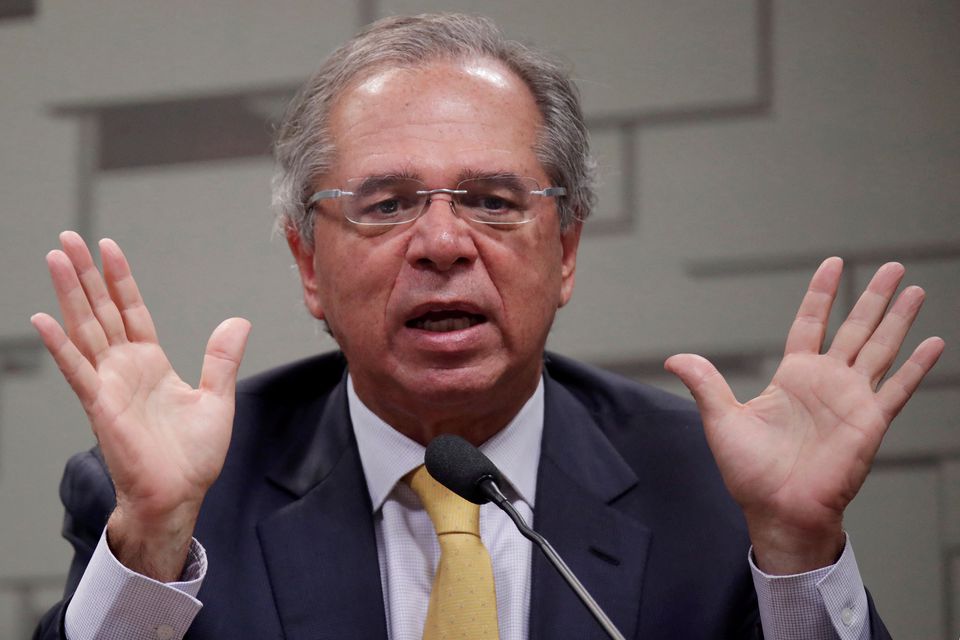
Brazilian Economy Minister Paulo Guedes is firmly against the idea of tax increases on the oil and gas industry, four ministry sources told Reuters, following days of government discussions about how to address political blowback over high fuel prices.
The Economy Ministry officials, who requested anonymity to comment on confidential discussions, said the internal debate kicked off on Friday, when state-run oil firm Petrobras announced higher gasoline and diesel prices, which have hurt President Jair Bolsonaro's popularity.
Bolsonaro called the price increases, triggered by a company policy he has struggled to reverse, a betrayal of the Brazilian people. Lawmakers threatened to open a congressional probe on the company's conduct. The Petrobras CEO quit on Monday in the face of the political backlash.
As pressure mounts ahead of an October general election, the Economy Ministry has held preliminary discussions about raising the so-called Social Contribution on Net Income (CSLL) for oil firms, according to the sources.
Guedes pushed back forcefully against the idea, the sources said, because he saw a risk of scaring investors away from an eventual privatization of Petrobras, which he openly supports.
The Economy Ministry declined to comment on the matter.
Some countries have adopted a windfall tax on oil firms' profits amid a commodities shock that has boosted the sector's earnings but has also fueled inflation worldwide.
Three of the ministry sources said that any CSLL increase would have to wait 90 days before taking effect, which would reduce its potential impact this year.
Higher government revenue could eventually be used to finance more generous income transfers to the poorest Brazilians, sources said, which Economy Ministry officials have long preferred over broad fuel subsidies.
But that would also raise legal questions, as the government is prohibited under electoral law from boosting social spending in the months leading up to the October election, sources said.
New spending would also have to fit in a tight federal budget, requiring another waiver to the constitutional spending cap or a cut to other expenditures, both seen as politically difficult, the sources added.